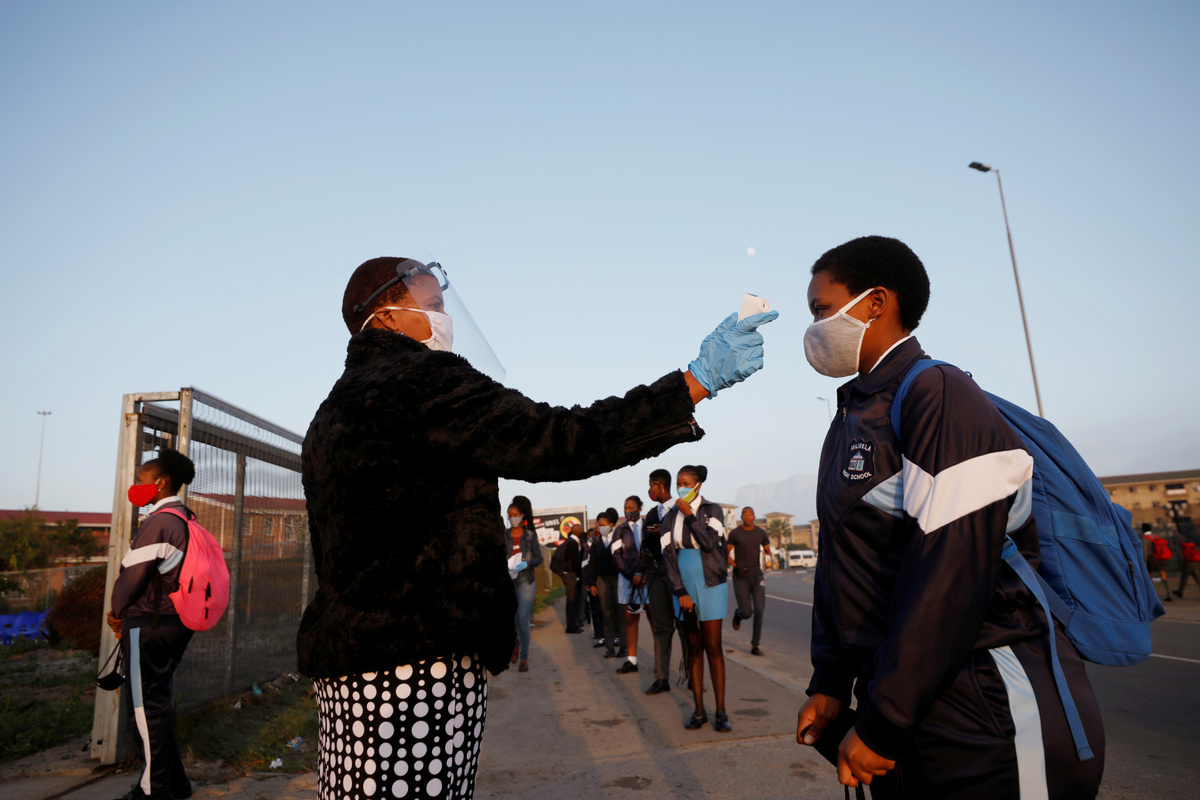
A learner is screened as schools begin to reopen after the coronavirus disease (COVID-19) lockdown in Langa township in Cape Town, South Africa June 8, 2020. UNDP has urged governments across Africa to lead the fight against a growing tide of false, inflammatory and misleading information. (Photo:Agencies)
The United Nations Development Programme, or UNDP, has urged governments across Africa to lead the fight against a growing tide of false, inflammatory and misleading information that threatens to worsen the already severe impacts of coronavirus.
The UNDP said national governments can mitigate the worst threats of misinformation, and in turn more loss of lives and livelihoods if they stand with their people to build a trusted relationship.
Advice about the novel coronavirus has been changing swiftly as medical understanding evolves, it said, with the rapid evolution and the crippling impact on lives and livelihoods leading to a public thirst for information.
Social media, informal news sources and fringe journalism have filled the void, often sowing fear, stigmatization, discrimination and confusion, the UNDP said.
Achim Steiner, the UNDP administrator, said the proliferation of so-called cures, scapegoating, conspiracy theories and misinformation that has flooded media in general and online platforms in particular has created a chaotic information environment, one that is undermining the effectiveness of public health measures.
This is in addition to producing real-life violence and discrimination, confusion, fear and, arguably, long-term societal harm.
Reject stigma
"Learning the lessons from HIV and Ebola, we must join forces to reject misinformation and stigma, anchoring our responses and advocacy in science, evidence, human rights and solidarity," Steiner said. "While many actors bear a responsibility to counter misinformation, real progress will not be achieved without government leadership."
The challenge is that disinformation and misinformation tools and tactics are now at the fingertips of anyone, including government agencies, wanting to co-opt the novel coronavirus for their own agenda, he said.
Researchers at the Bruno Kessler Foundation in New Jersey analyzed 112 million public social media posts related to the pandemic, finding that 40 percent came from unreliable sources, and that almost 42 percent of more than 178 million tweets related to the coronavirus were generated by bots.
The UNDP is working closely with national institutions as well as with media and civic actors to help the fight against the spread of disinformation and misinformation.
The agency is supporting Somalia's Ministry of Endowments and Religious Affairs to set up a website that will provide guidelines for safe burial techniques and help mobilize the religious community to donate and deliver supplies.
In Guinea-Bissau, the UNDP and the health ministry supported the development of a fact-checking site, www.nobaschecker.org, which helps Portuguese speakers access trustworthy information on coronavirus.
By building a wide community of fact-checking journalists, doctors, and economists from Guinea-Bissau and around the world, the site aims to fight disinformation by providing facts and verified news.


